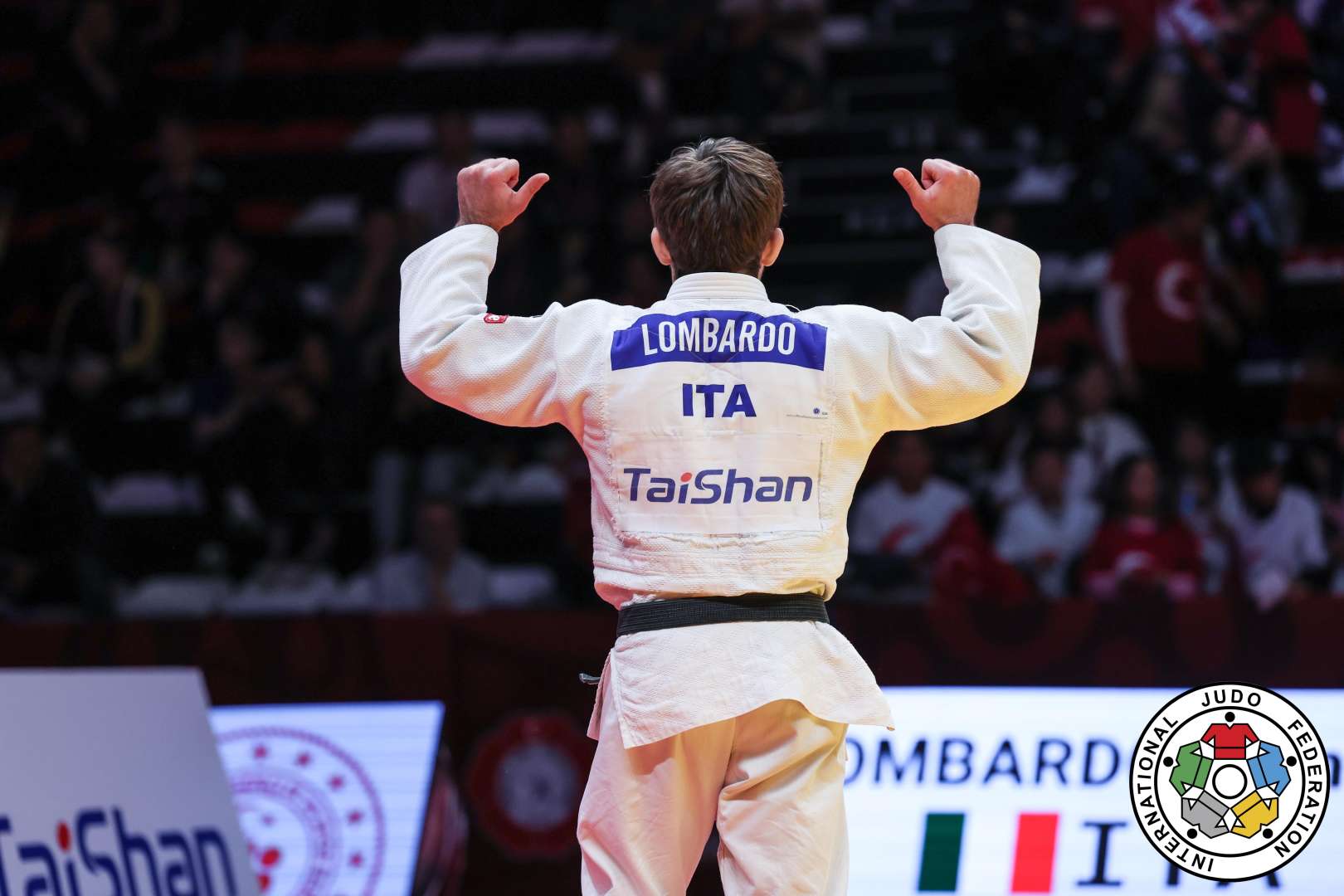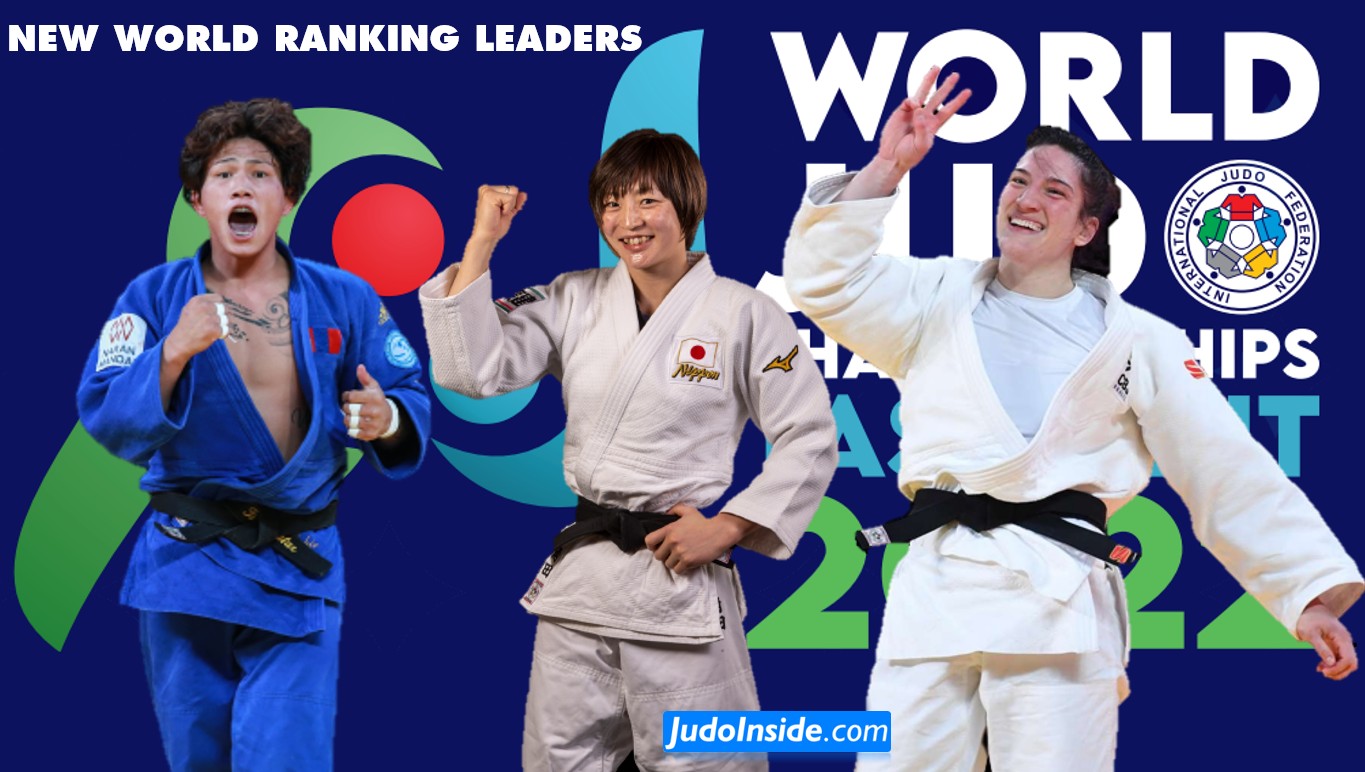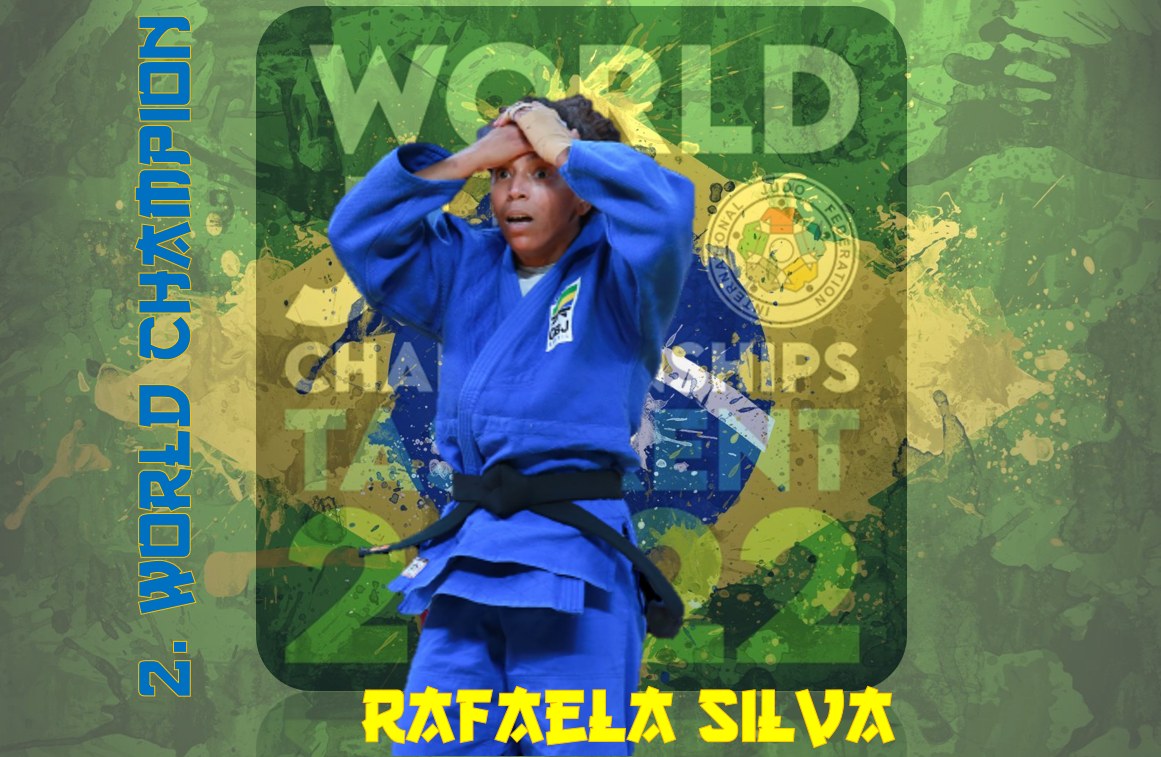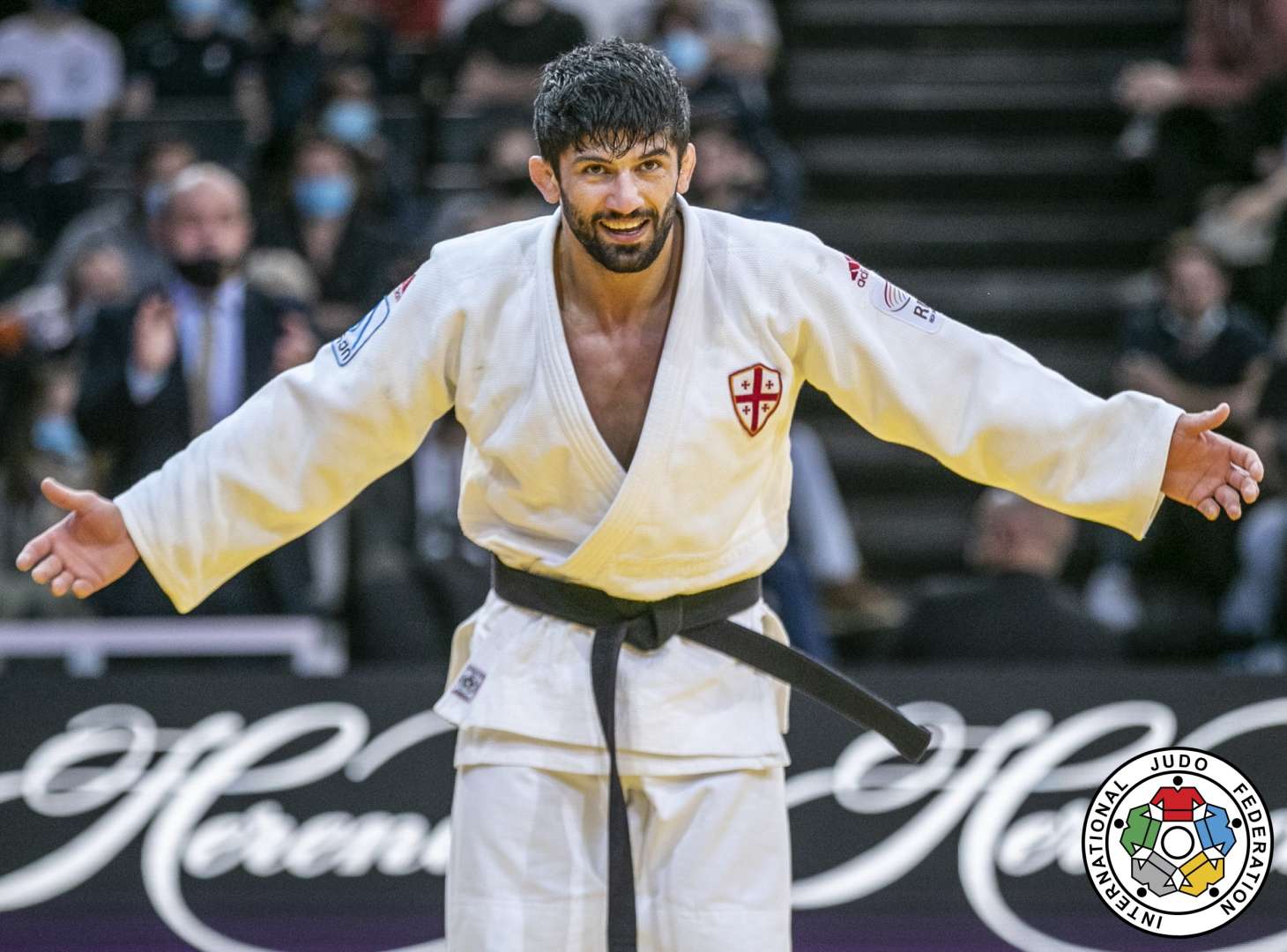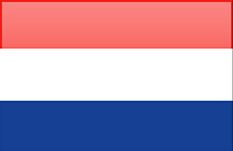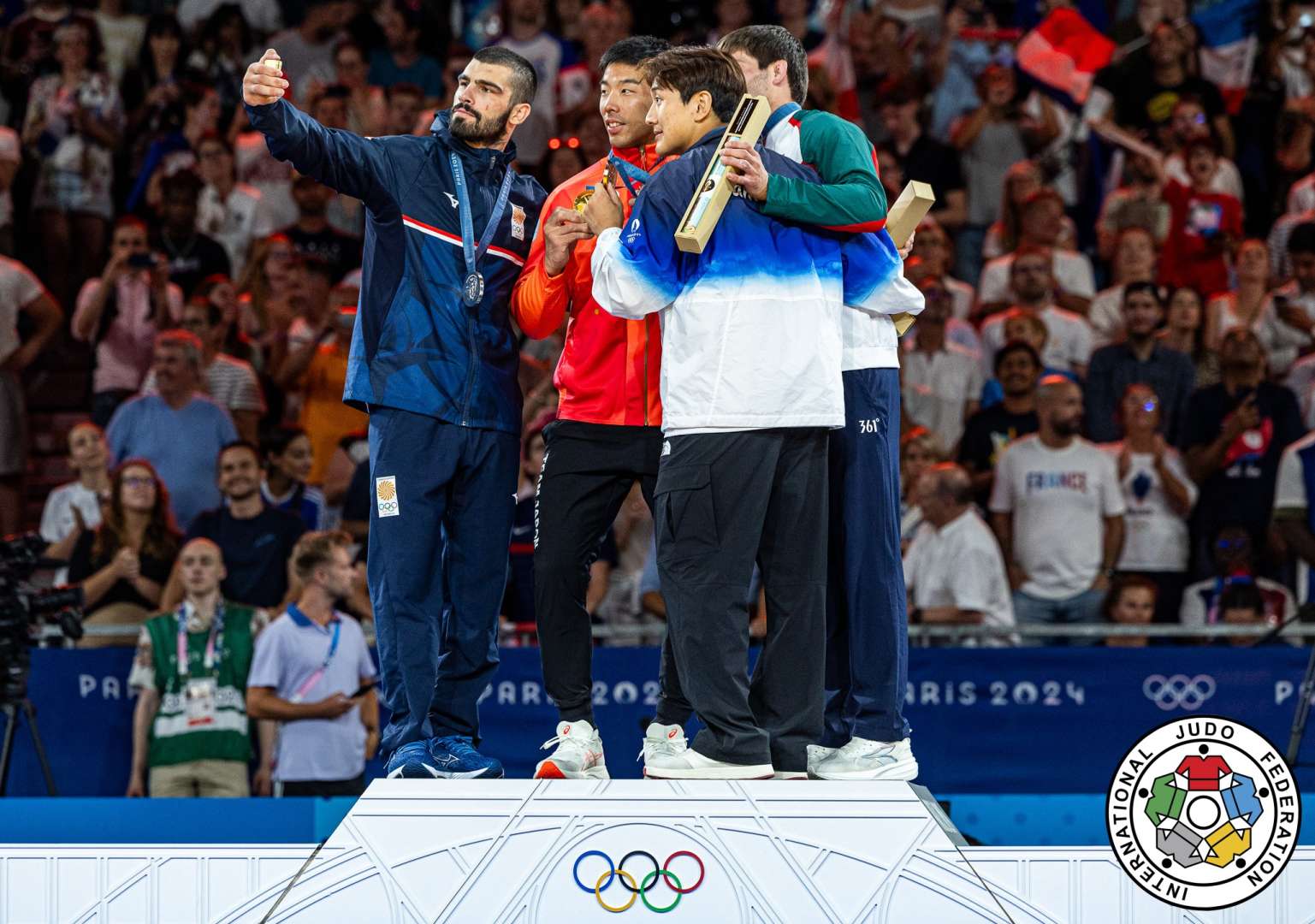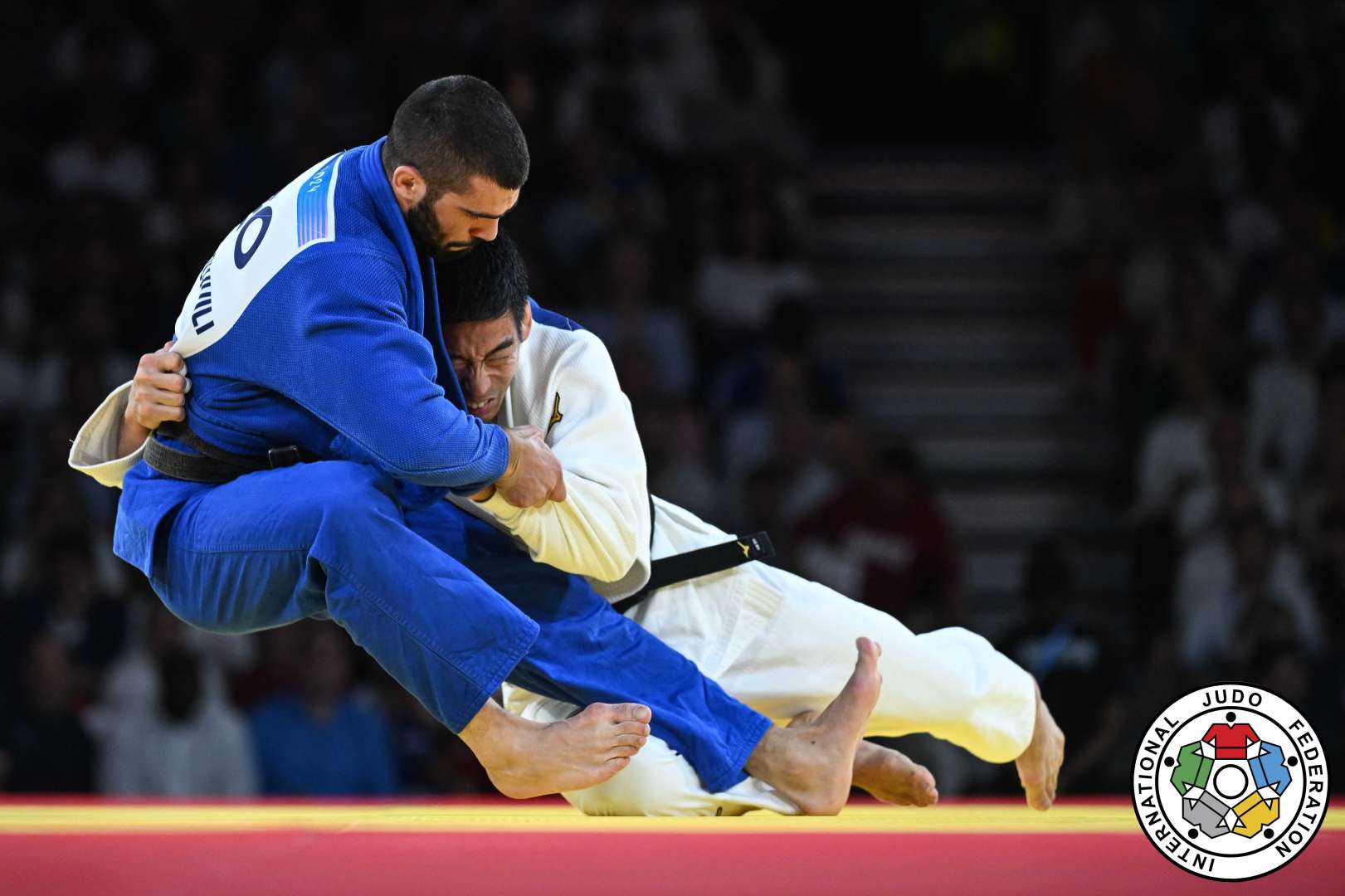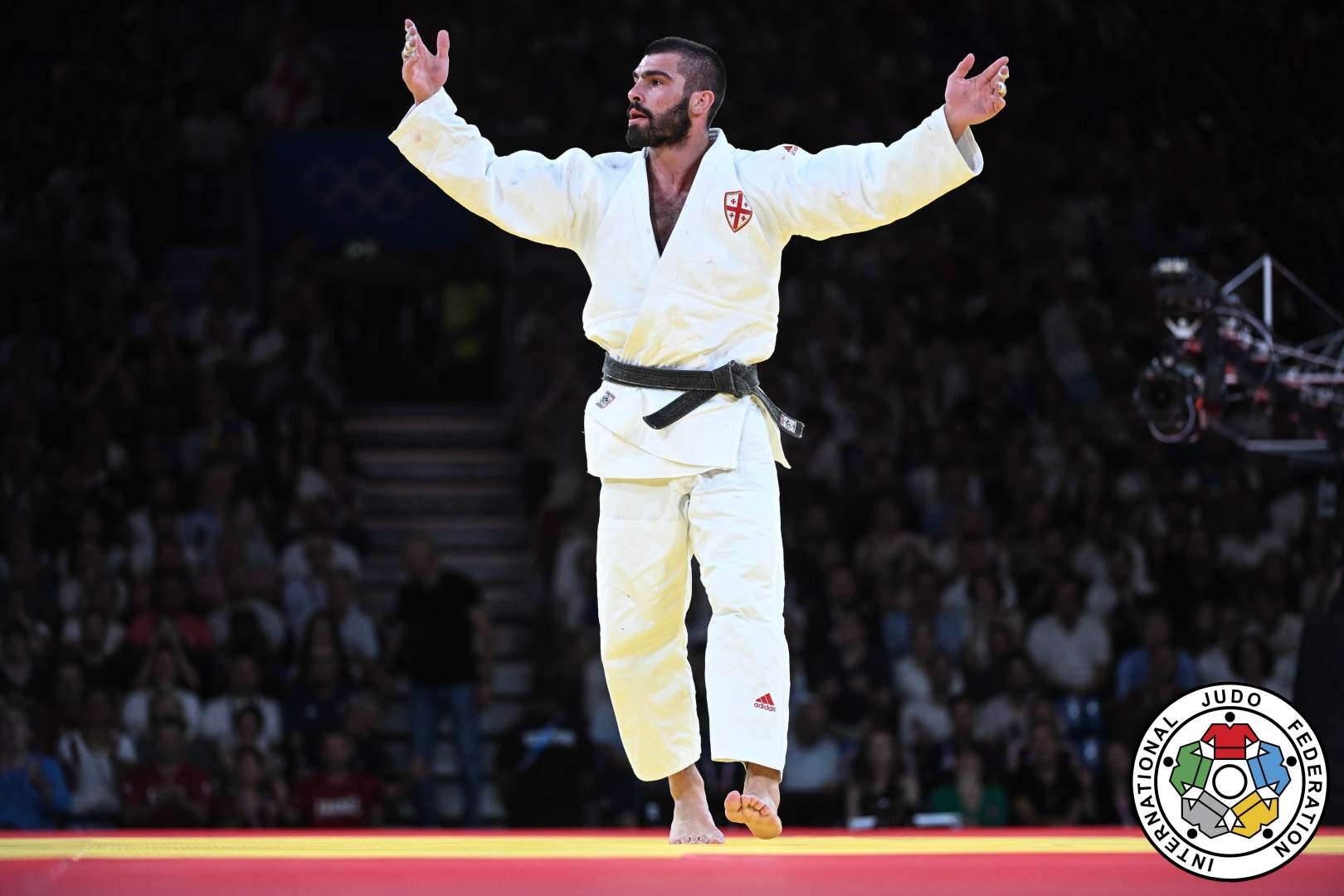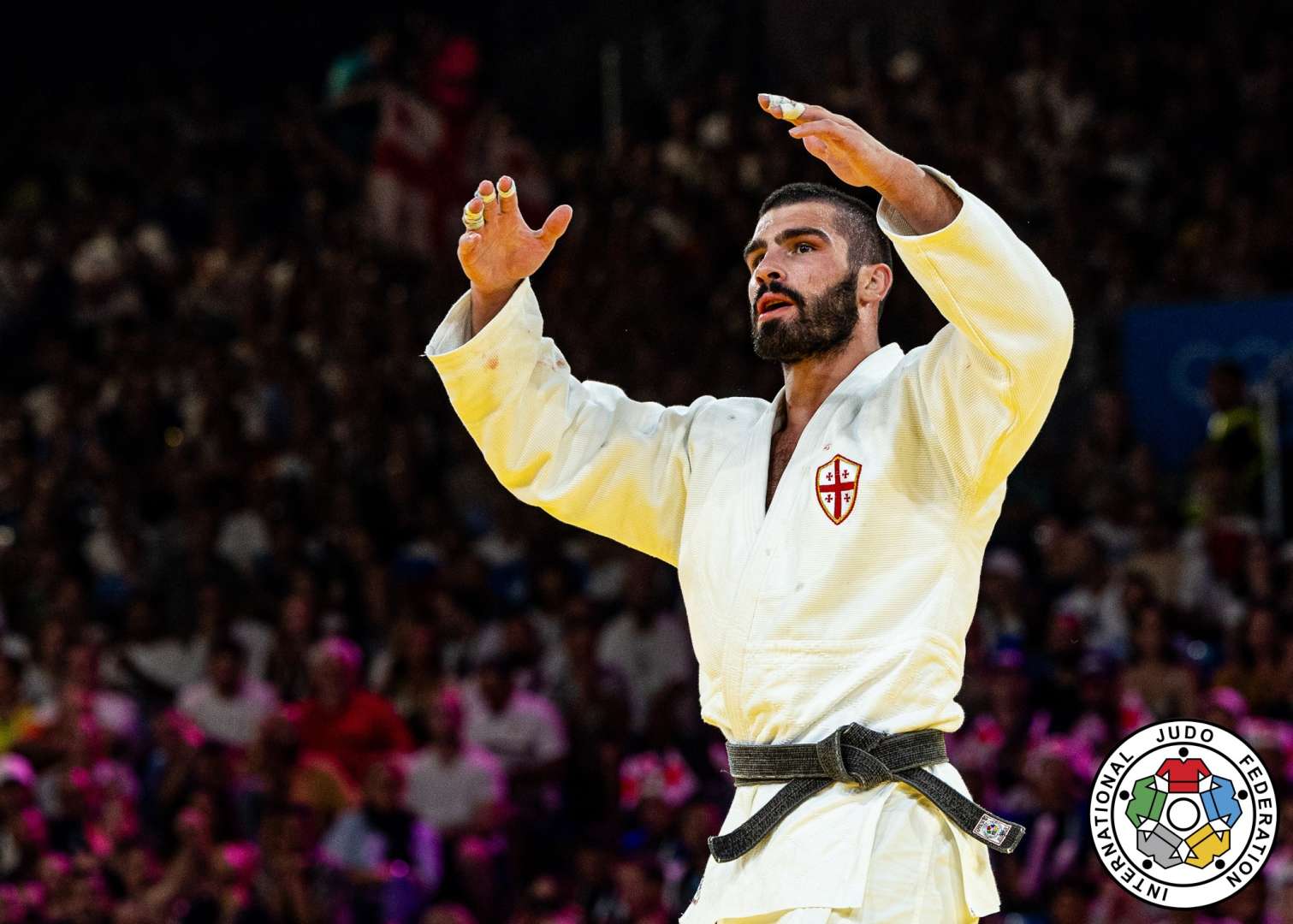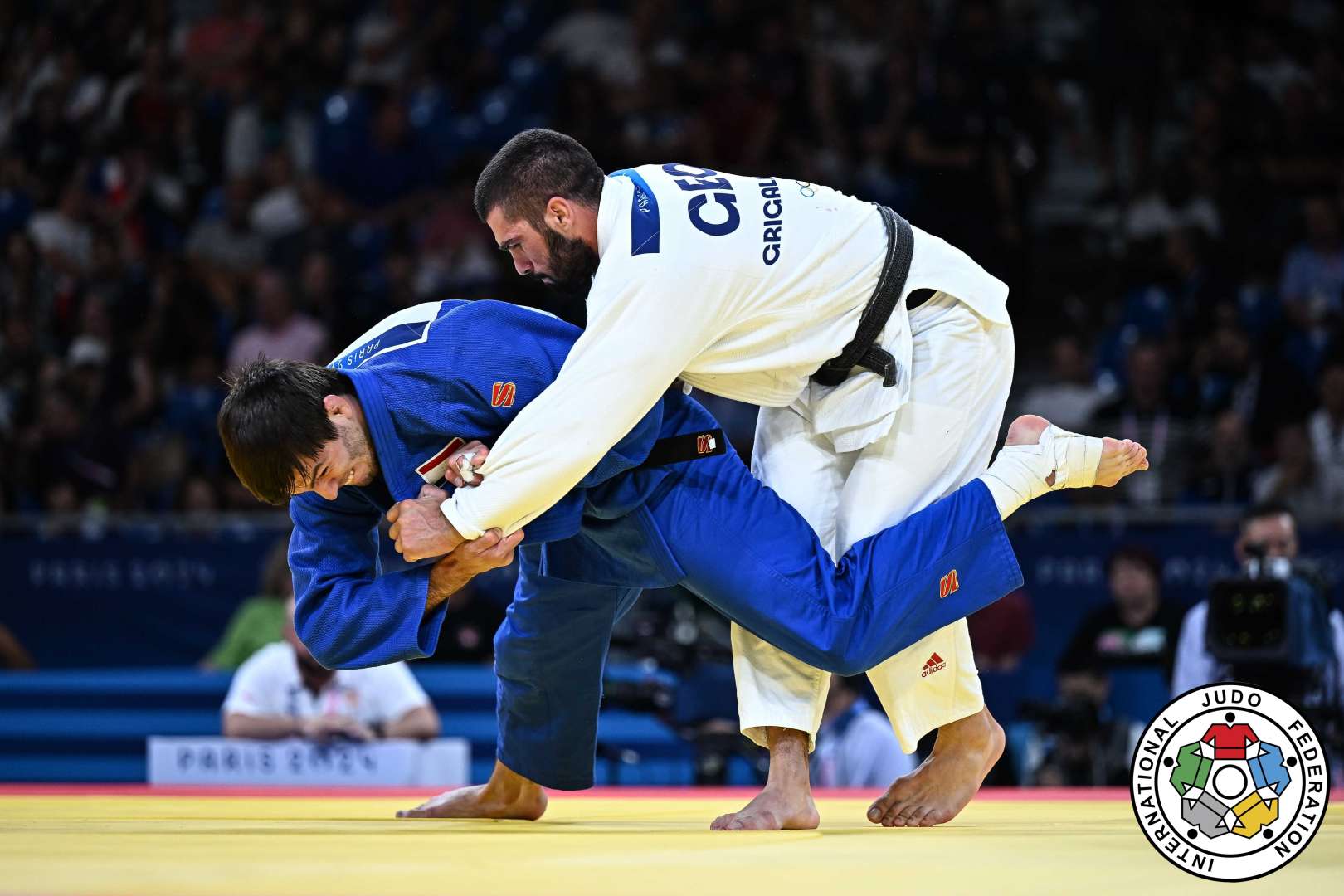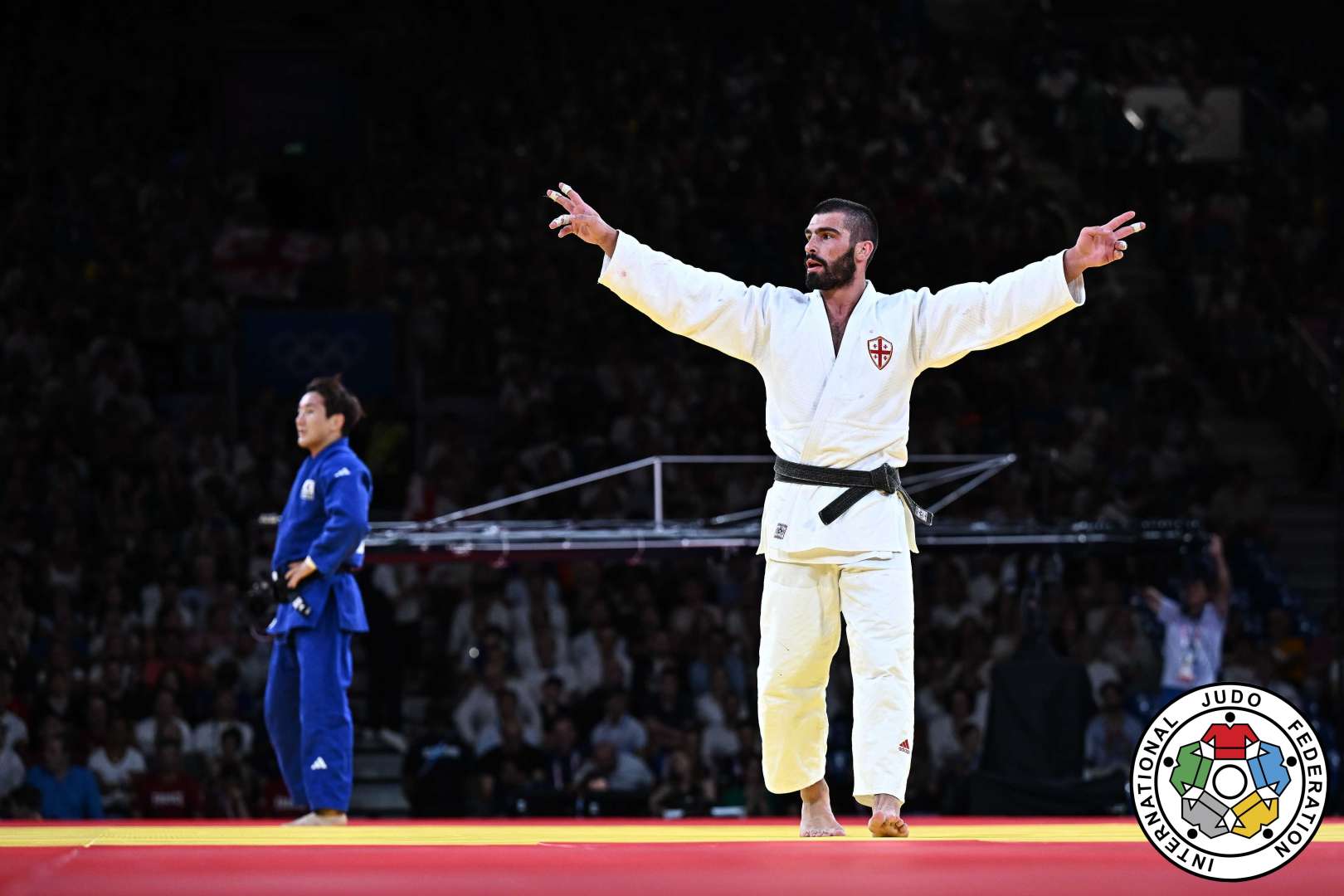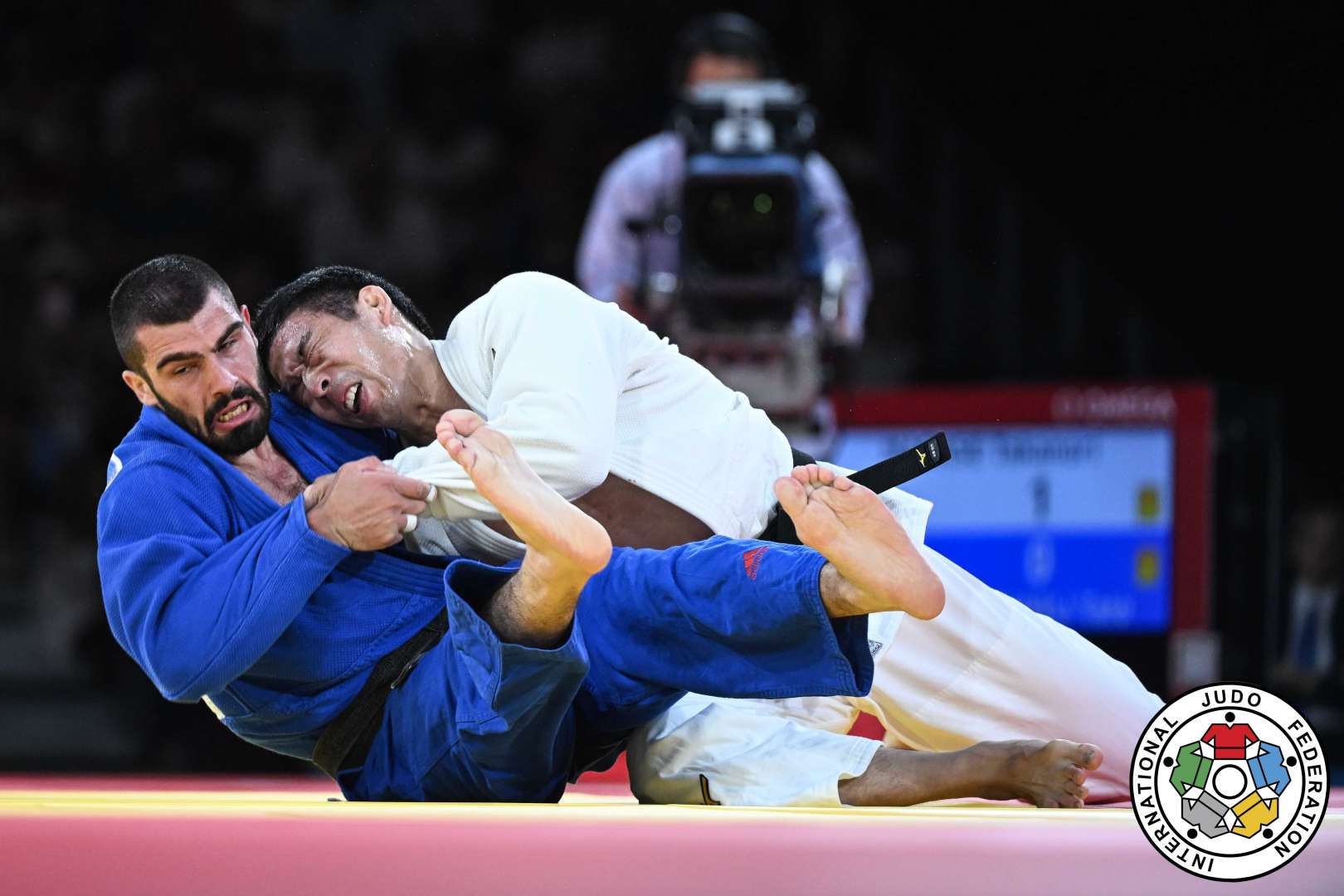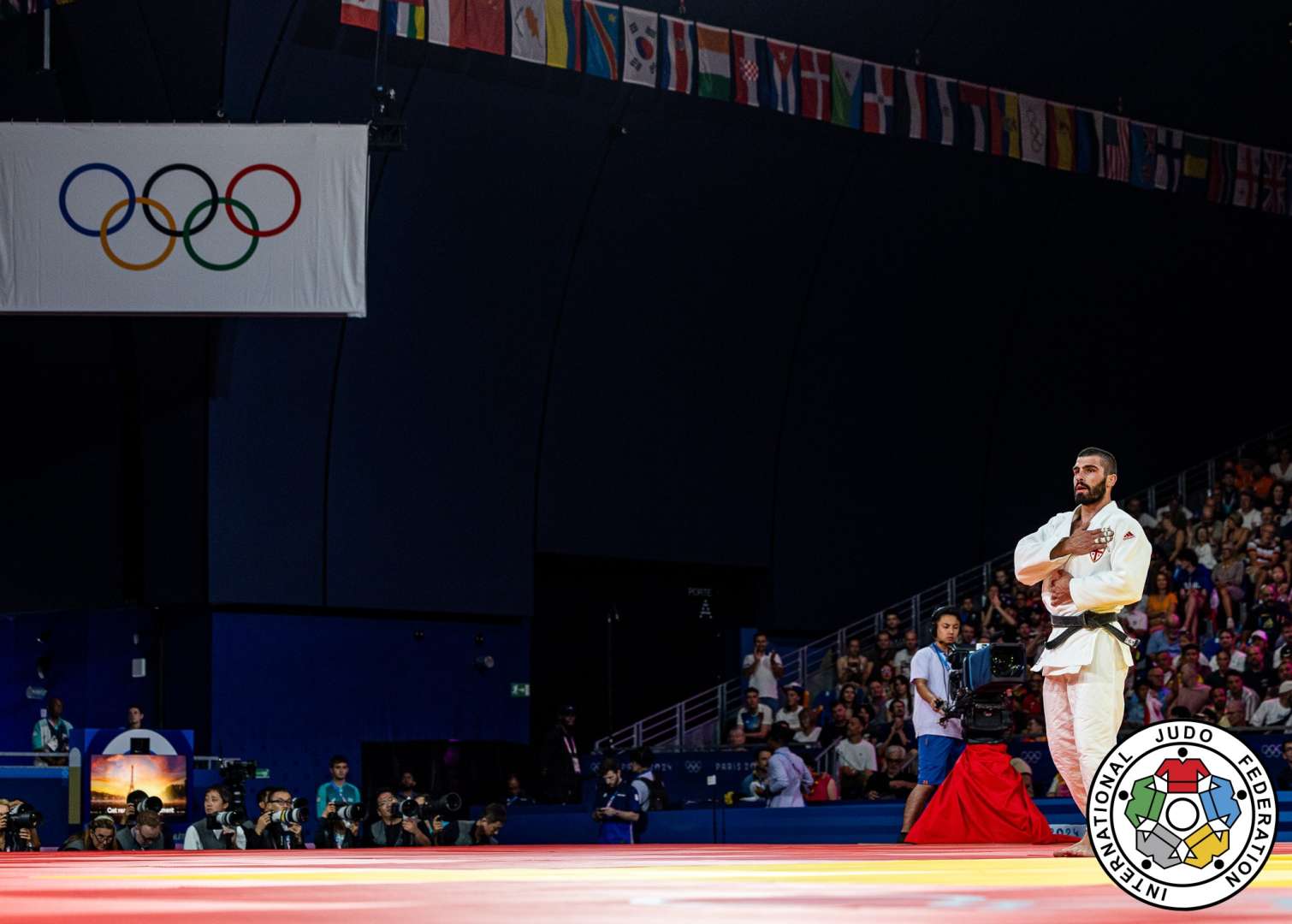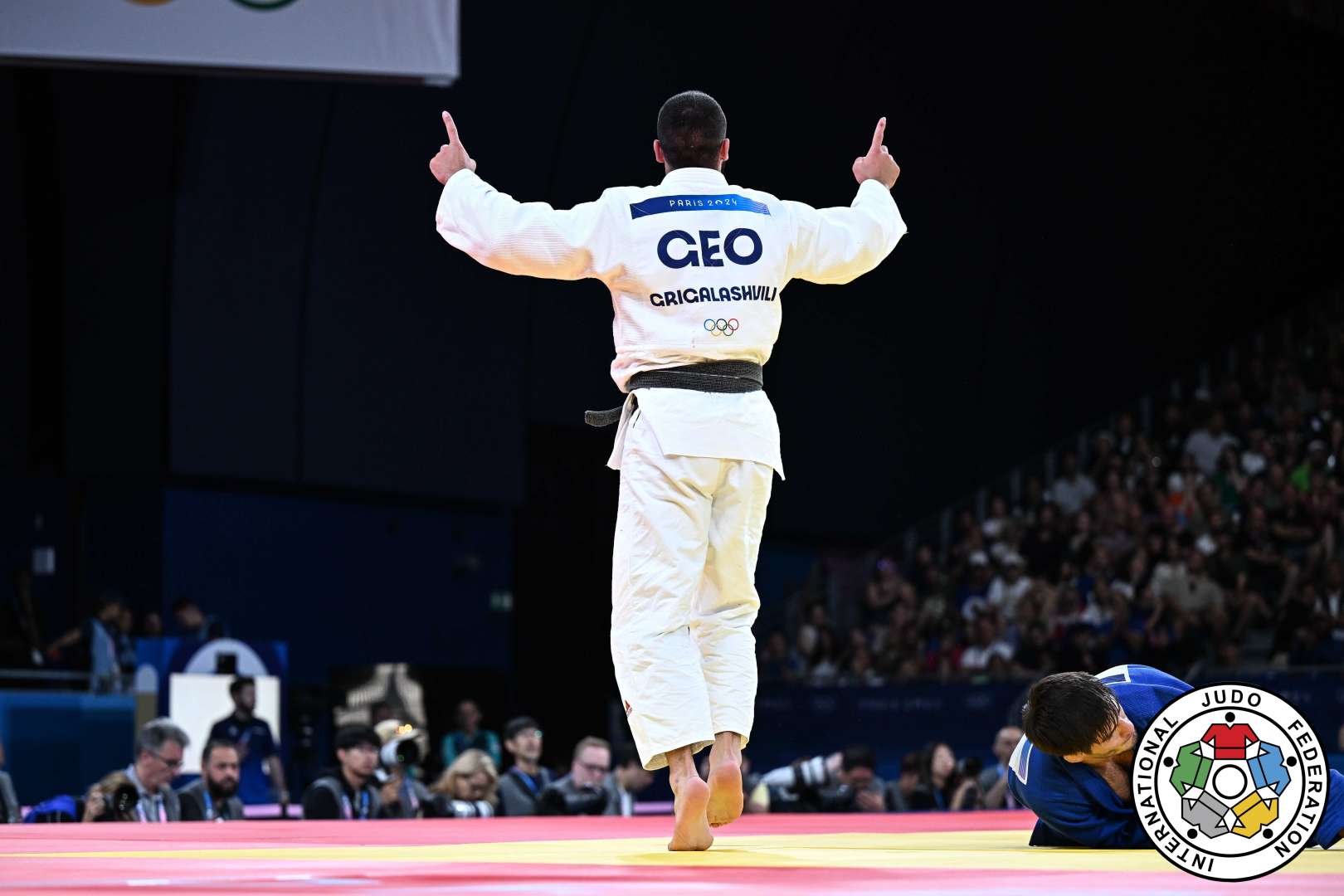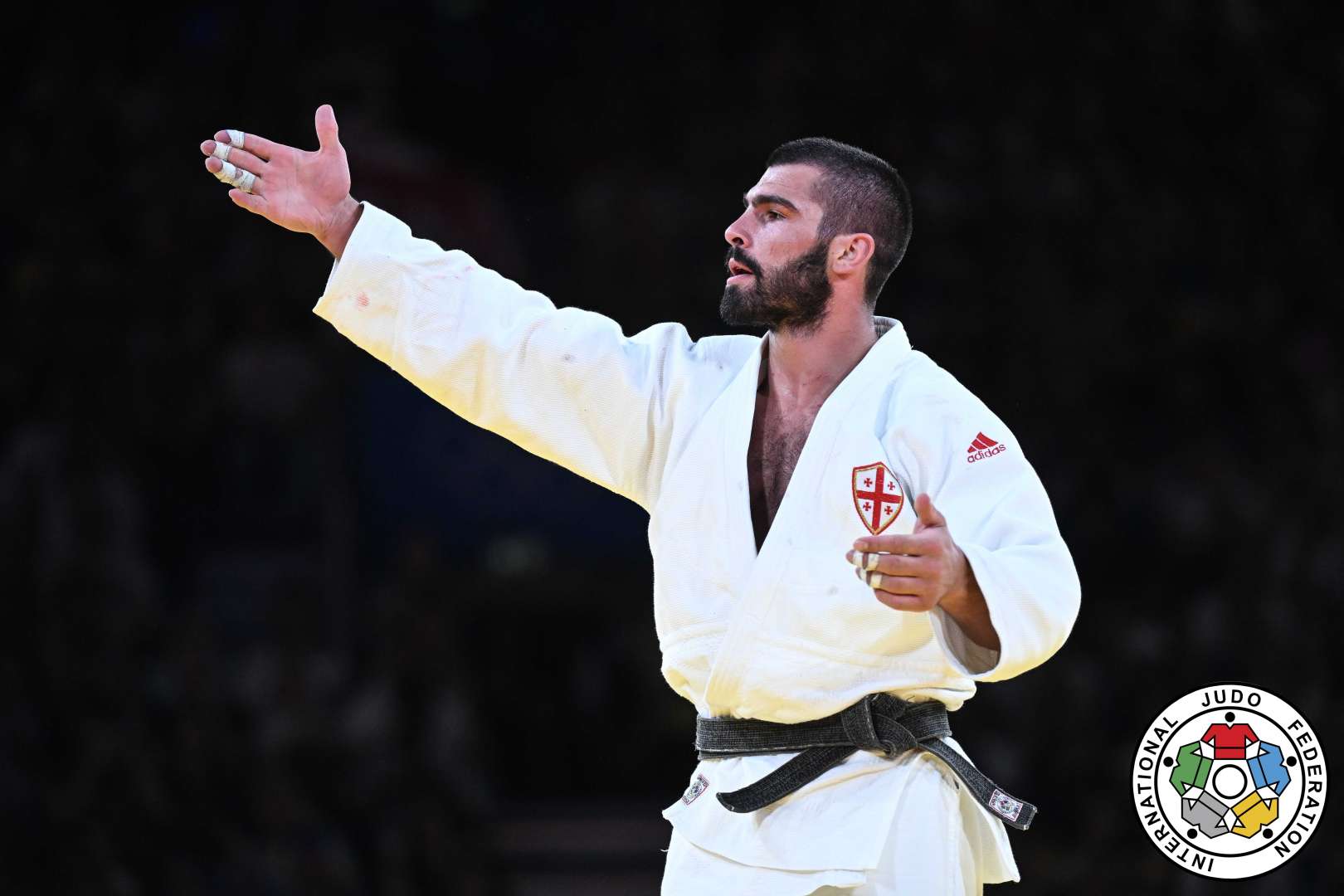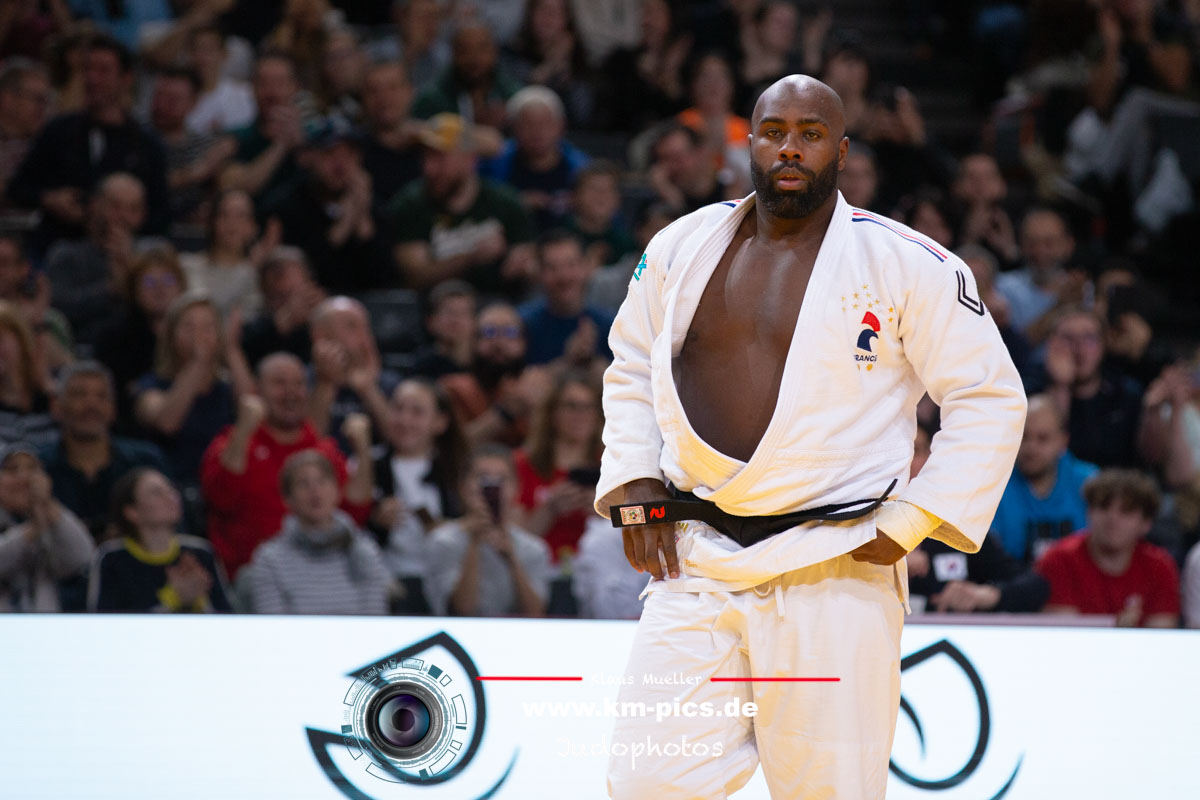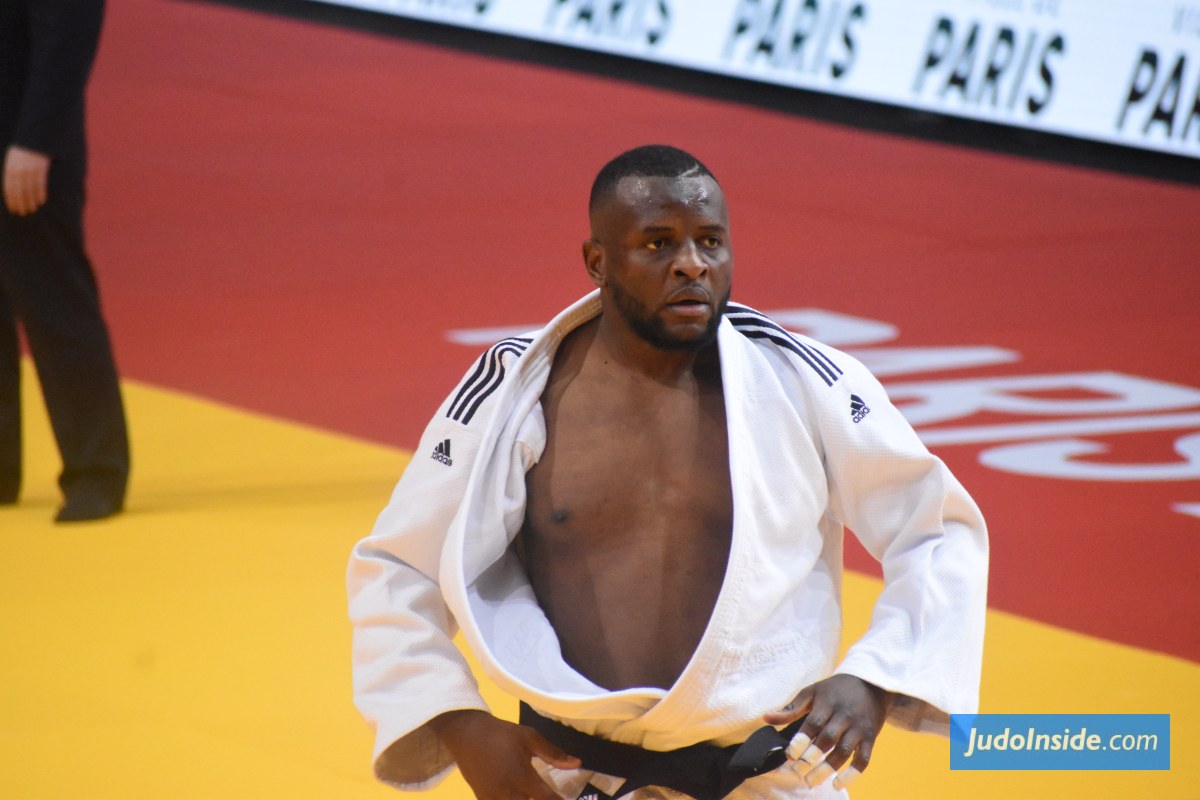Shohei Ono remains the king of judo U73kg
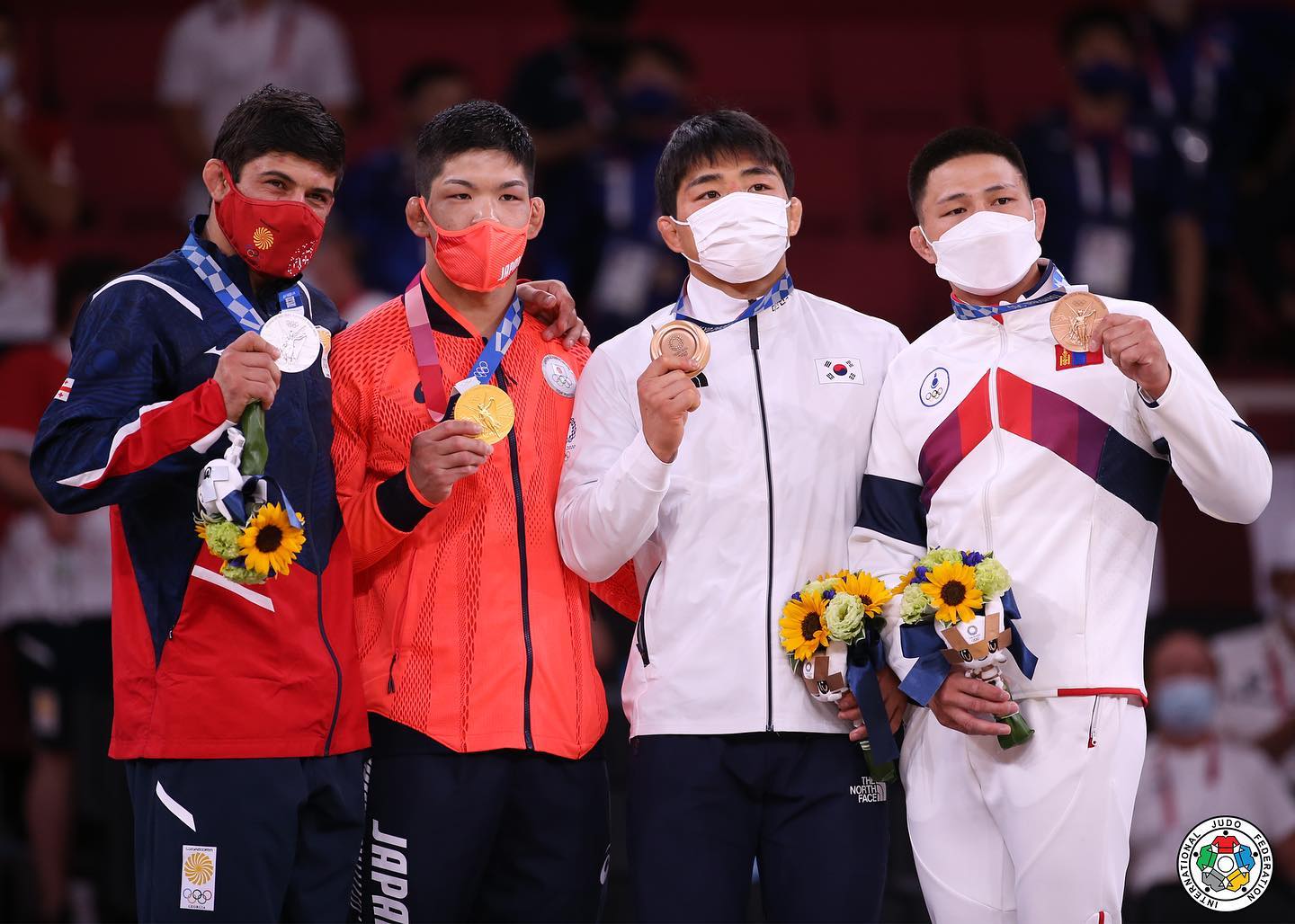
 26 Jul 2021 17:00
26 Jul 2021 17:00
 IJF Media Department and JudoInside
IJF Media Department and JudoInside
 IJF Media Team / International Judo Federation
IJF Media Team / International Judo Federation
His 13th position in the World Ranking List is far away from showing the talent of Shohei Ono of Japan, who participated in only a few events but when he did, he secures gold medals with a kind of ease. In the final at the third day of the Olympic Games in Tokyo Ono was faced with Lasha Shavdatuashvili of Georgia. Shavdatuashvili is one of the most decorated athletes on the globe.
Shavdatuashvili was the Olympic champion eight years ago in London U66kg and then a bronze medallist in 2016 in Rio, one weight up, the Georgian once again managed to fight his way into the final of the Olympic Games. He is a legend anyway with three Olympic medals in a row and the European and World title in this category.
Among the distinguished visitors of the final block, the President of the International Olympic Committee, Thomas Bach who spoke with the Japanese siblings Abe who won the gold on Sunday.
Ono seemed impossible to throw and Shavdatuashvili was like a cat with several lives, until that moment when Ono did what he does best, producing a piece of art. That sasae-tsuri-komi-ashi exploded from nowhere, like a single brushstroke of black ink on the paper to draw a perfect Japanese character. The victory awarded, Ono and Shavdatuashvili showed a profound respect to one another and then left the mat. Only then did a smile appear on Ono's face. He is Olympic champion for the second time and nothing seems to be able to stop him. Ono can continue for a third in Paris in just three years.
Ono Shohei said: "When I won my first Olympic title I was young. Today, and after years of defeating everyone, I can tell you that it wasn't easy. I'm also very happy because during all these years I managed to stay in my weight category, and this is also an achievement."
Kosei Inoue said: "Ono is the best judoka I’ve ever seen in my life. He is the perfect combination of power, precision and technique."
Lasha Shavdatuashvili said: "I am a little disappointed of course but Ono is the best judoka. He’s so strong and he never makes mistakes. In the end this is judo and we are equal, each with two hands and two legs and the same opportunities. The best wins. My road to the final was hard but I always trust myself and I will never give up."
An finds the gap for bronze
Rustam Orujov (AZE) was one of the favourites for a medal in the morning. Both Orujov and An Chang-Rim (KOR) were favourites but one had to bow out and it was Orujov; a silver medal five years ago but defeated in Tokyo by the Korean with a seoi-nage just a few seconds before the final gong. An Chang-Rim adds one more medal to the tally for Korea, on the occasion of the Tokyo 2020 Olympic Games.
The second bronze medal contest could go either way between Tsogtbaatar Tsend-Ochir (MGL) and Arthur Margelidon (CAN) as both athletes demonstrated great skills and capacities to throw during the first rounds. It was Tsend-Ochir who proved to be most concentrated when he immediately followed to the ground after a confused action, with an armlock for ippon and the second bronze medal for Mongolia.
Exciting and long semi finals
The Japanese Olympic champion Ono was the first judoka to step on the tatami on the morning of the competition, when the venue was still totally silent. Eyes closed, walking slowly to feel the mat, Ono was ready and he proved to be just that during the first matches. In the quarter final Orujov really tried to push the Japanese to the limit, but nobody knows where those limits are. Within a few seconds, Ono had thrown Orujov twice, each time with impressive technique.
In the semi-final Ono faced Tsogtbaatar Tsend-Ochir for a spot in the final. For the majority of normal time it was a very even contest and that gave rise to increasing anticipation in the arena. When will he throw? What technique will he choose? Actually it wasn’t that simple as the Mongolian had prepared expertly and cancelled most efforts from Ono.
The second semi-final saw the new world champion from Budapest, Lasha Shavdatuashvili facing An who had really tough matches, including a first round against the 2016 Olympic champion at U66kg, Fabio Basile, and others against Khikmatillokh Turaev (UZB) and Tohar Butbul (ISR) but in every case the Korean found the necessary resources to score a liberating waza-ari.
Cagey gripping took up the majority of the first two and a half minutes and eventually both were penalised. It’s not surprising though, with both men aware of the caliber of the opponent. With a few seconds of the fight left, both judoka opened up, looking to avoid the pressure of golden score. 45 seconds into extra time, Shavdatuashvili put in his strongest attack of the contests, with a kata-guruma but An was ready for it and defended perfectly.
In the next exchange he continued to raise the level of power imposed, attacking first and from a dominant grip. Then a low left seoi-nage and then a sacrifice. Lasha did all he could to out-work the Korean and it paid off, putting Shavdatuashvili into the second Olympic final of his career and only a month after becoming world champion for the first time.
Repechage matches
Rustam Orujov thought this would be his day and that he would be able to defeat the king Ono, but this was not the case. Should the Azerbaijani have something to complain about? Probably just that Ono is on another planet and that's all. In the repechage Orujov met Akil Gjakova (KOS) who proved that not only the women are performing in Kosovo. Once again the match was a tough one and the athletes couldn't decide the winner within normal time and had to employ the golden score period, where Orujov finally scored a waza-ari to have one more chance to win an Olympic medal after his Rio second place five years ago.
Arthur Margelidon (CAN) could win a second bronze for Canada but before that he had to face Tohar Butbul (ISR). With two waza-ari Margelidon secured a place in the bronze medal match.
 like
like
 share
share
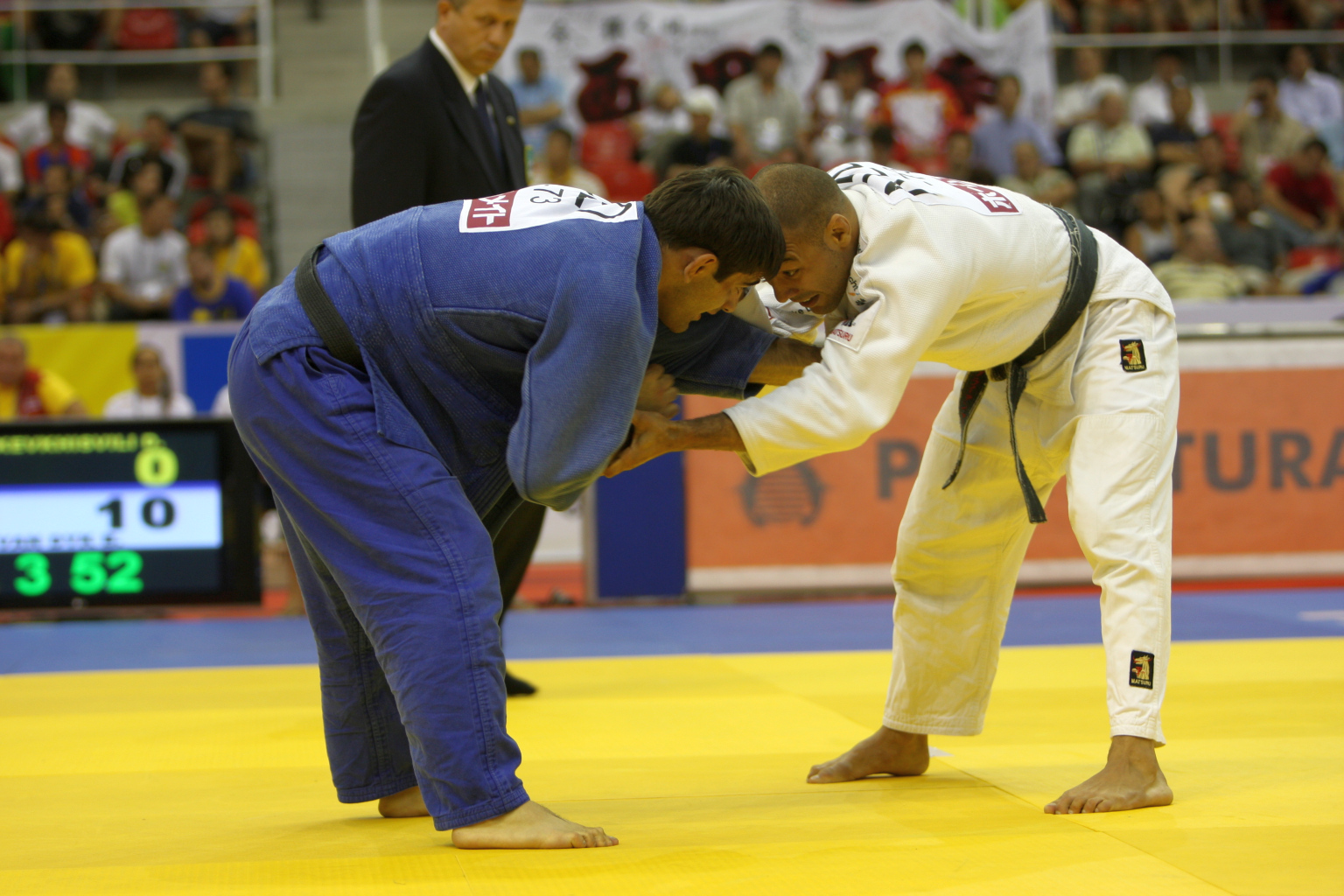
| Result | City | Date |
|---|---|---|
| 2 | Paris | 2024 |
| 1 | Abu Dhabi | 2024 |
| 1 | Zagreb | 2024 |
| 3 | Belgrade | 2023 |
| 2 | Montpellier | 2023 |



